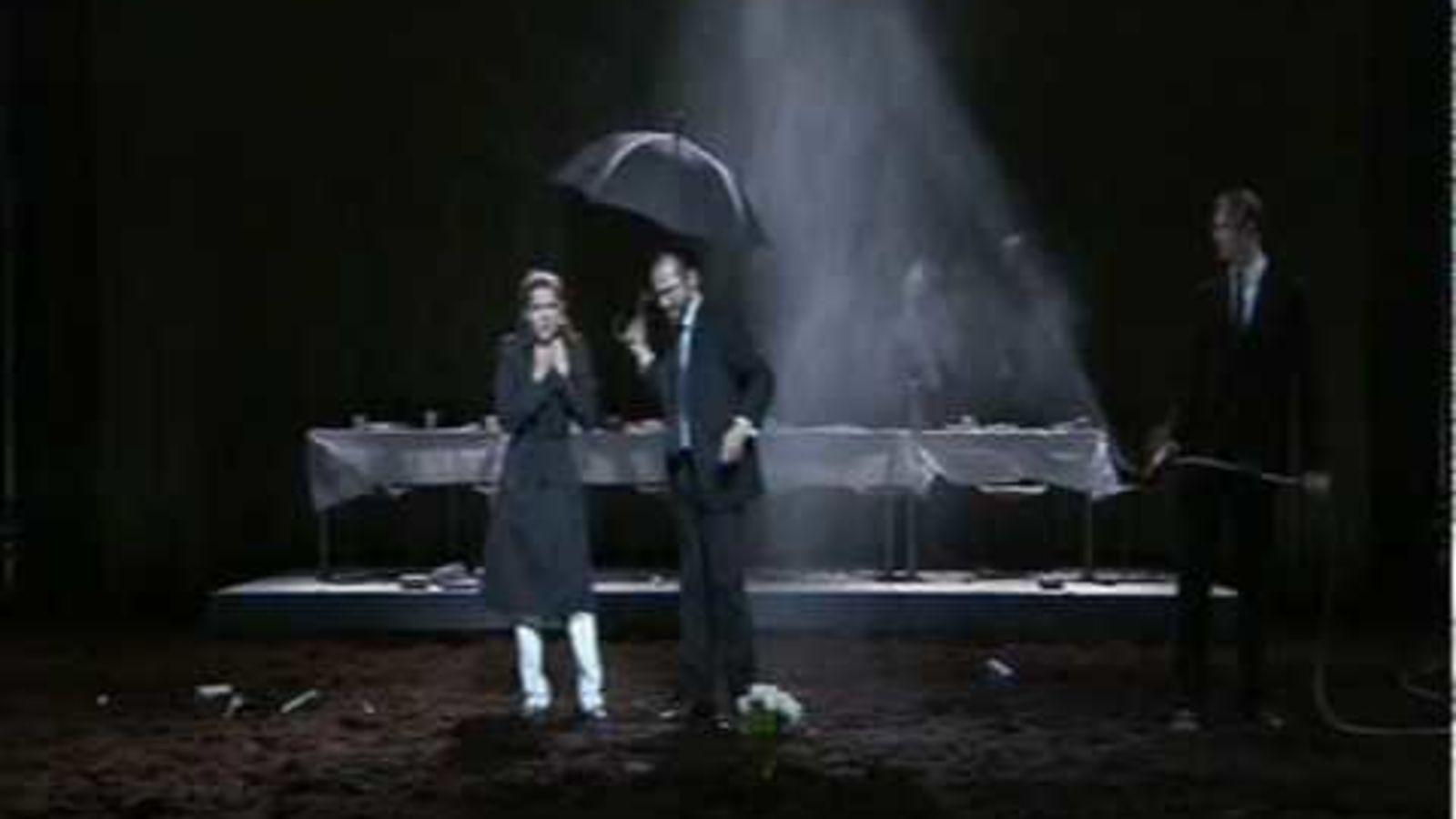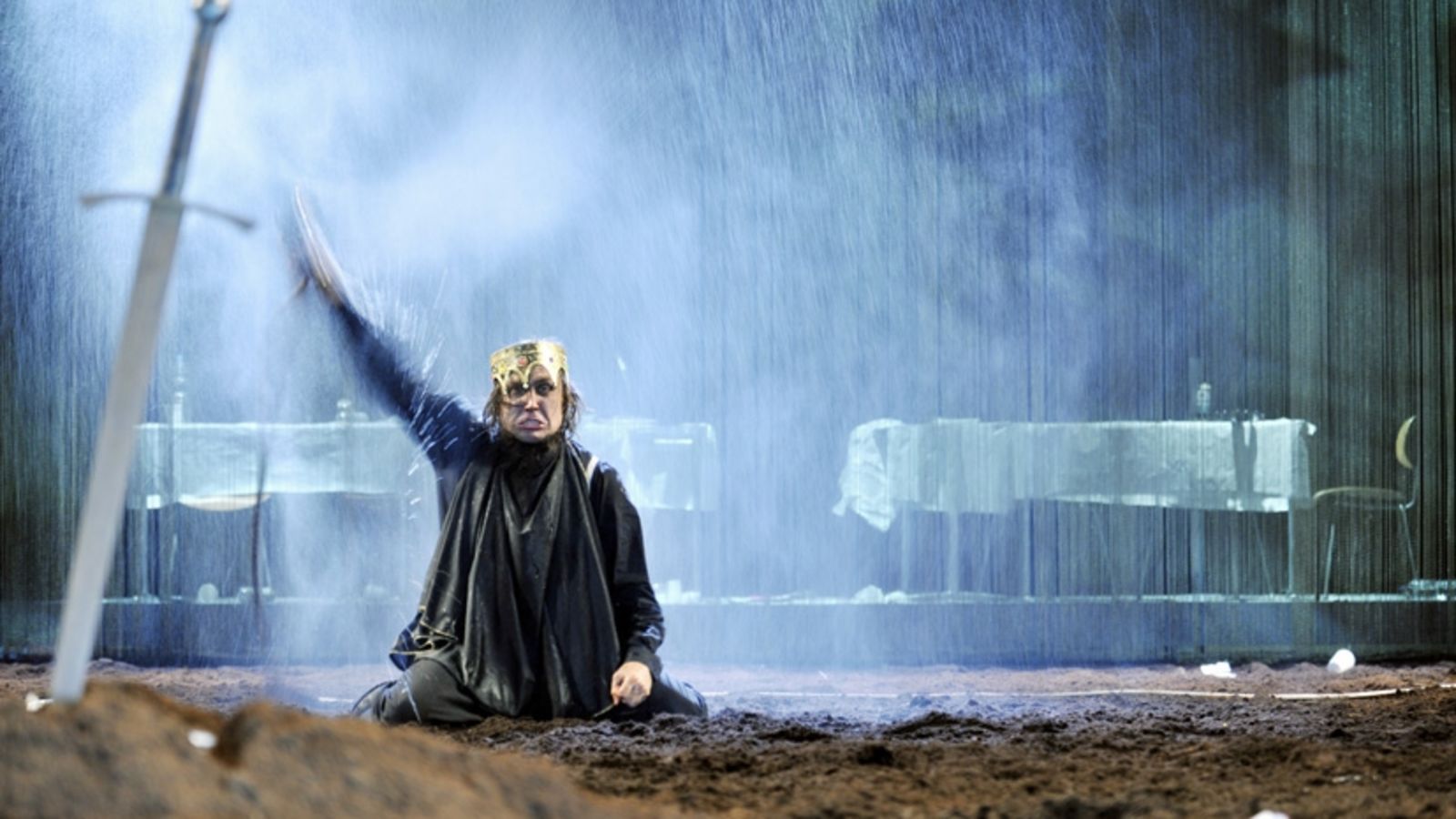
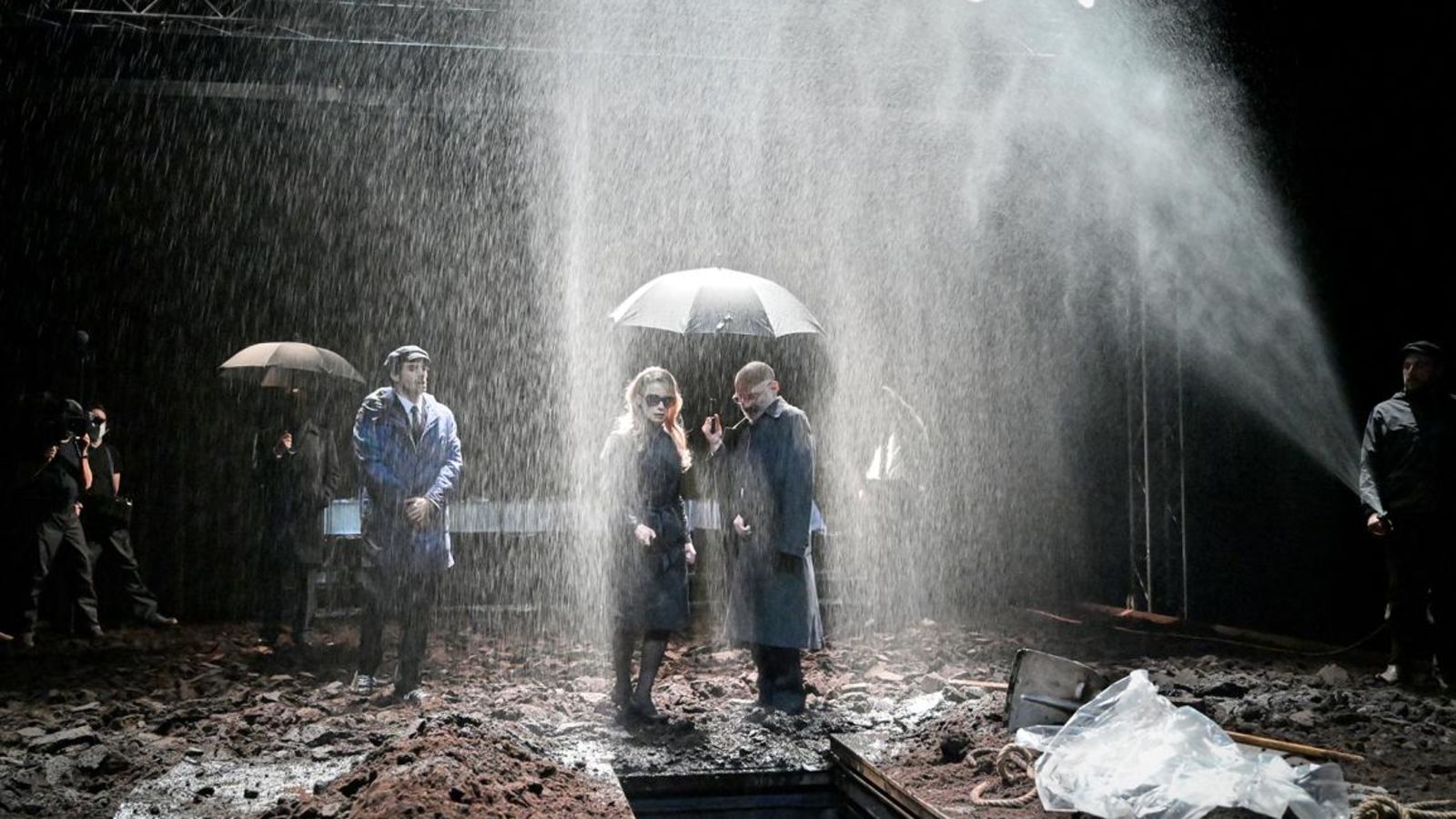
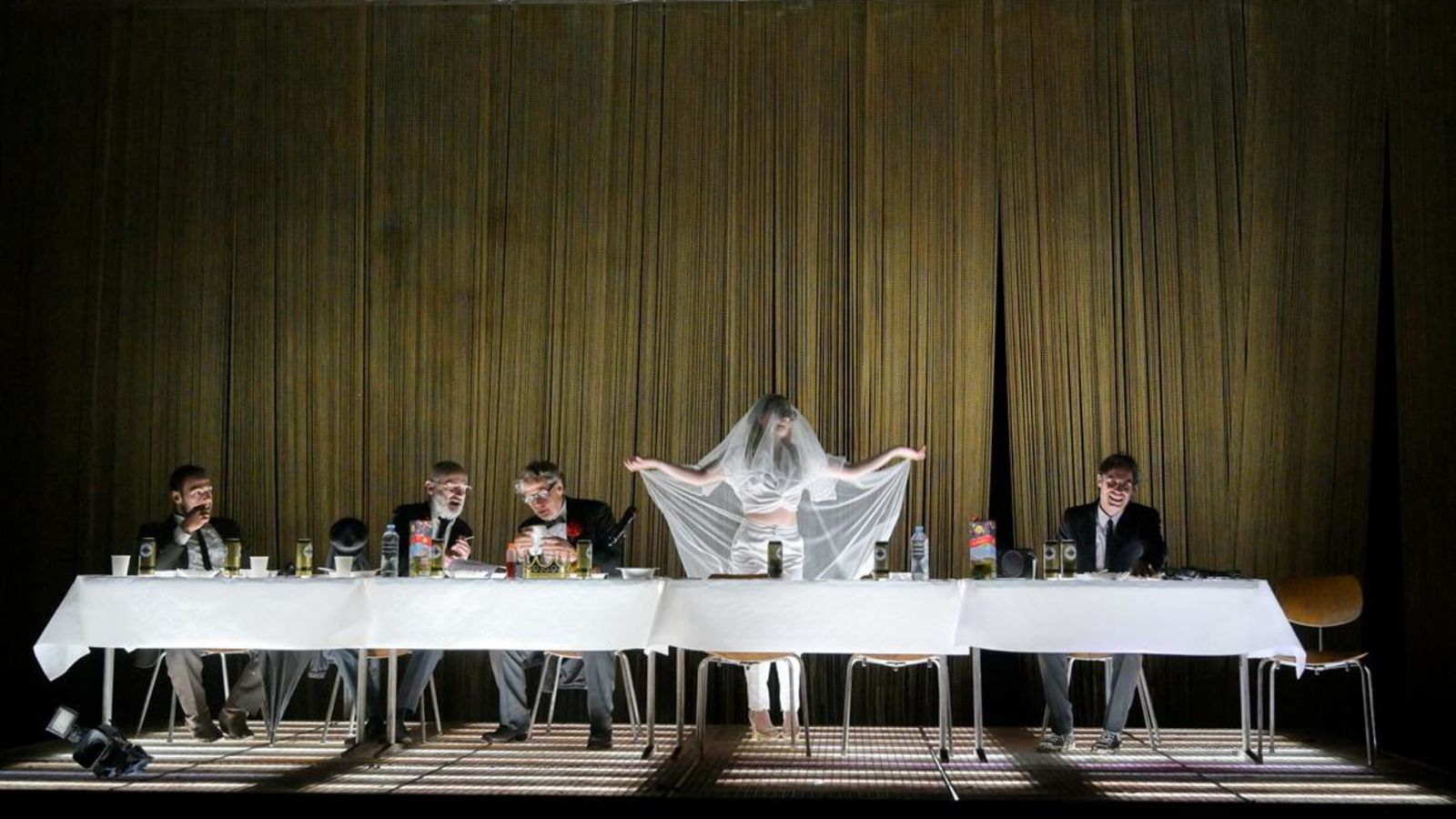
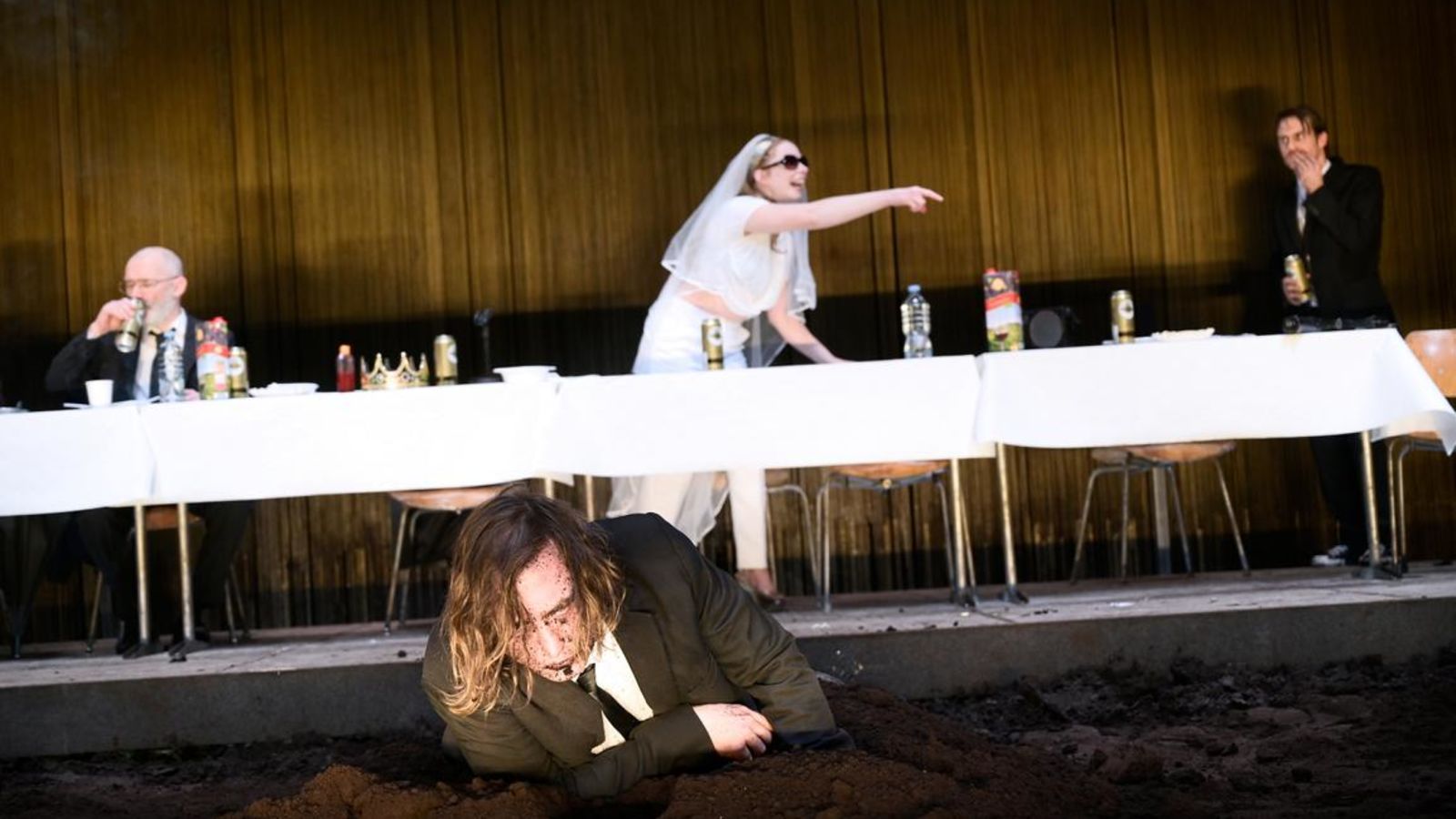
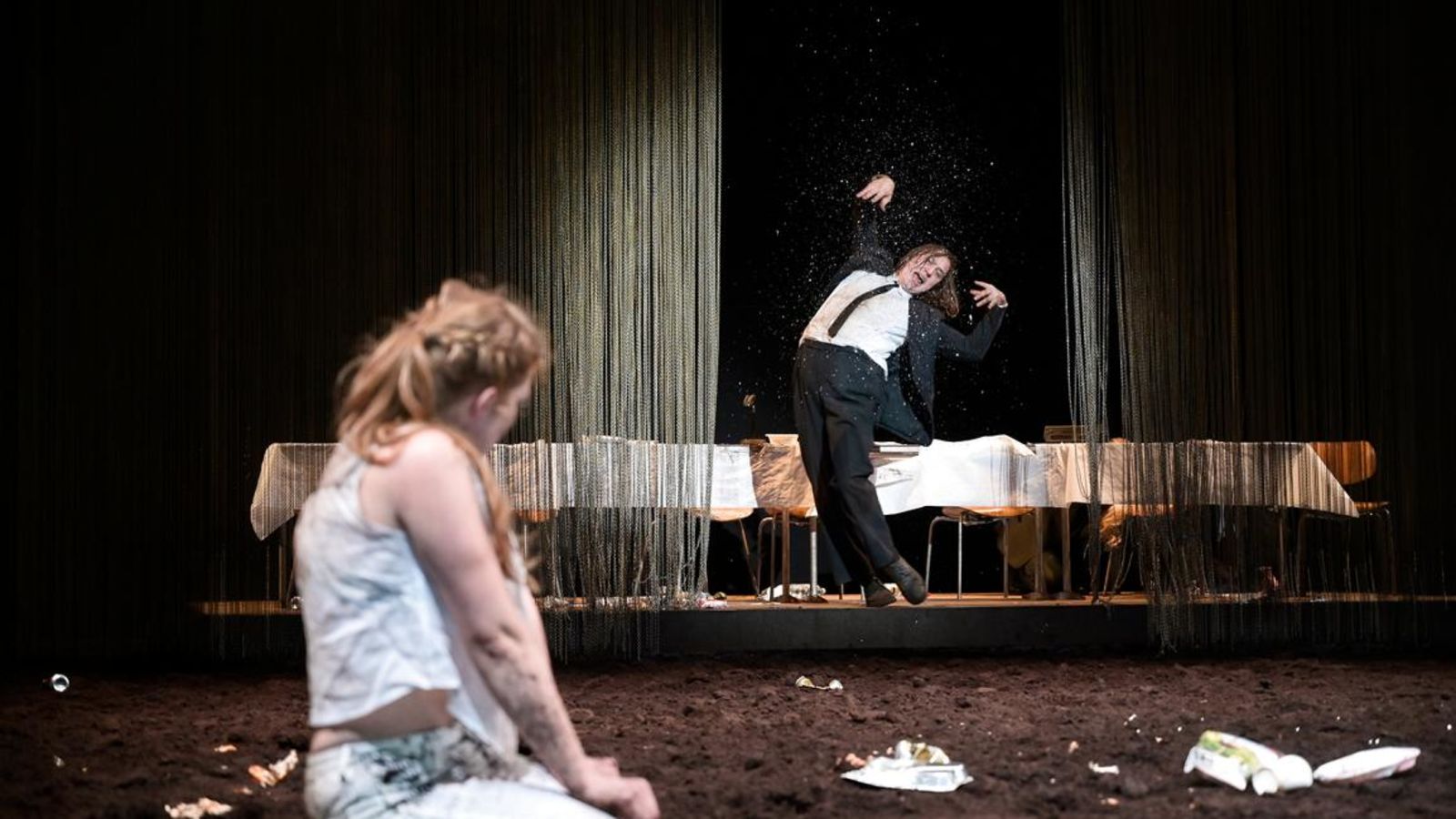
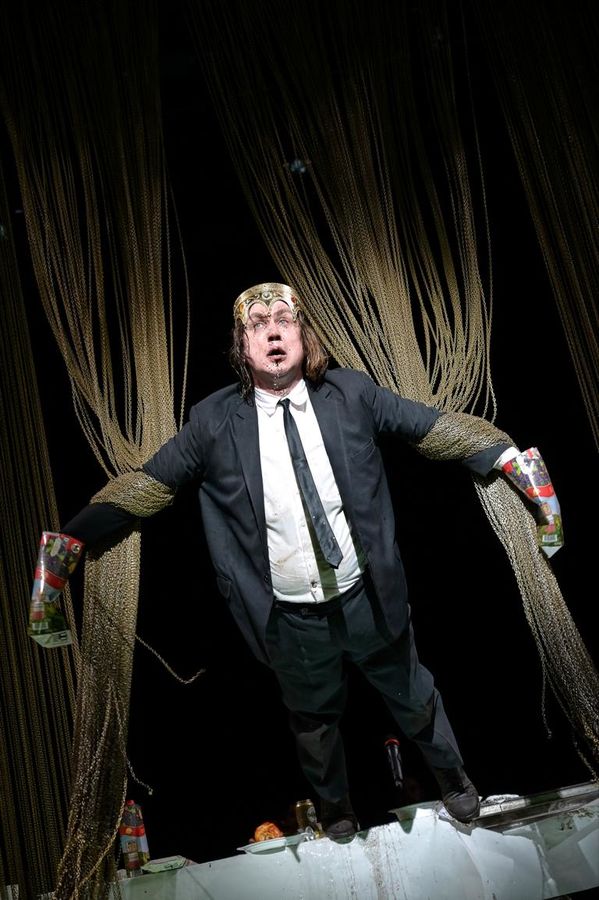
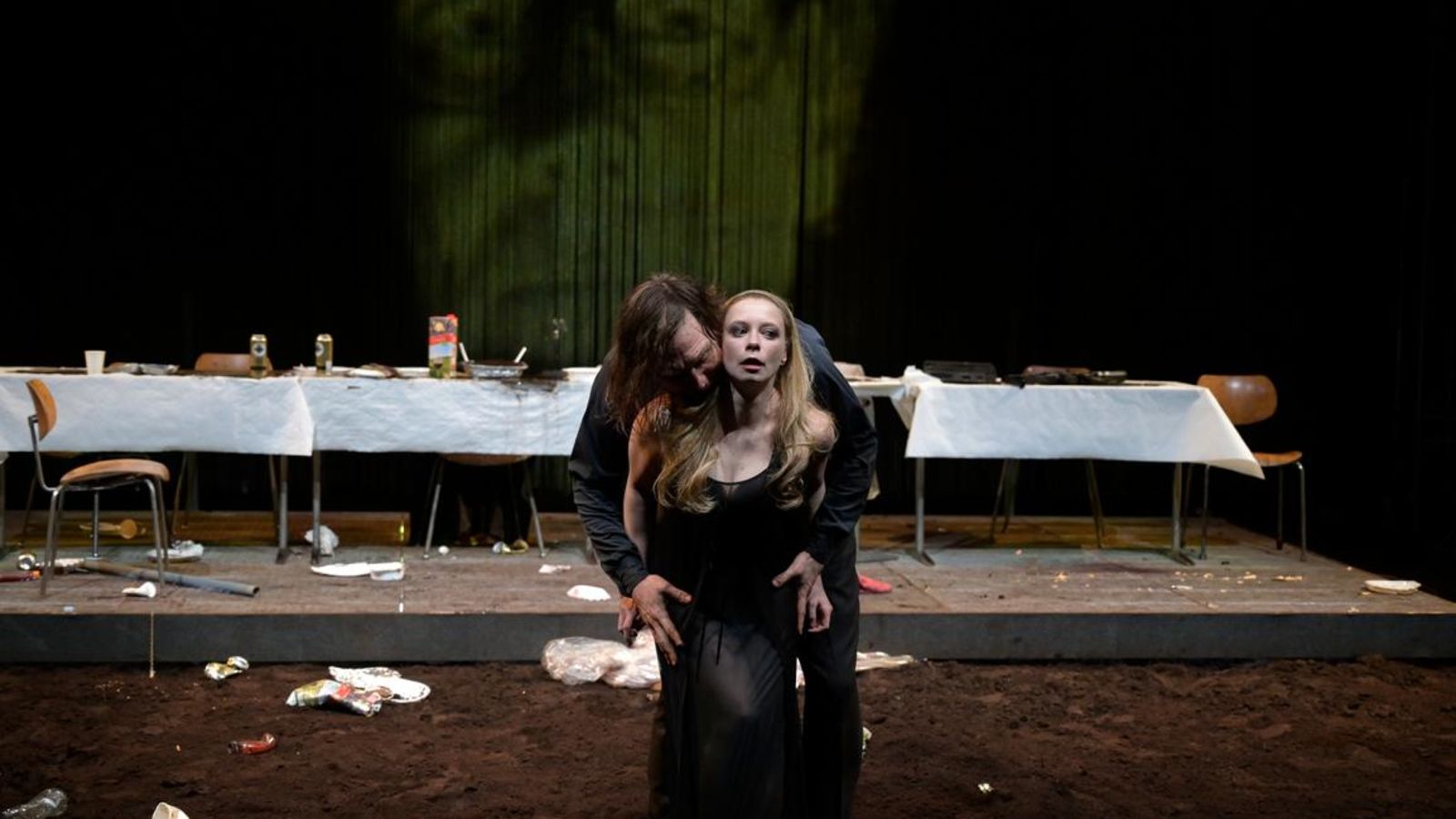
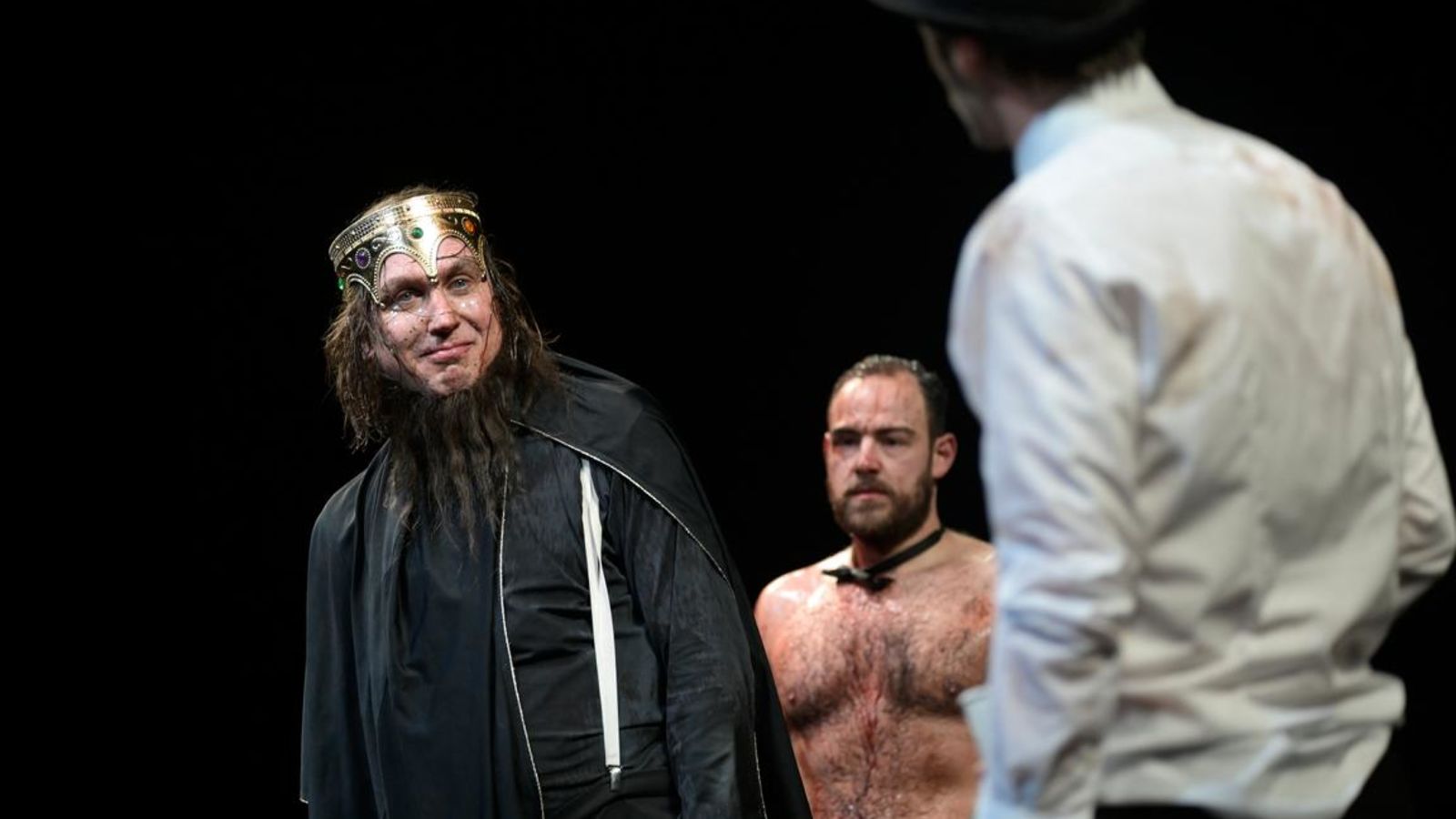
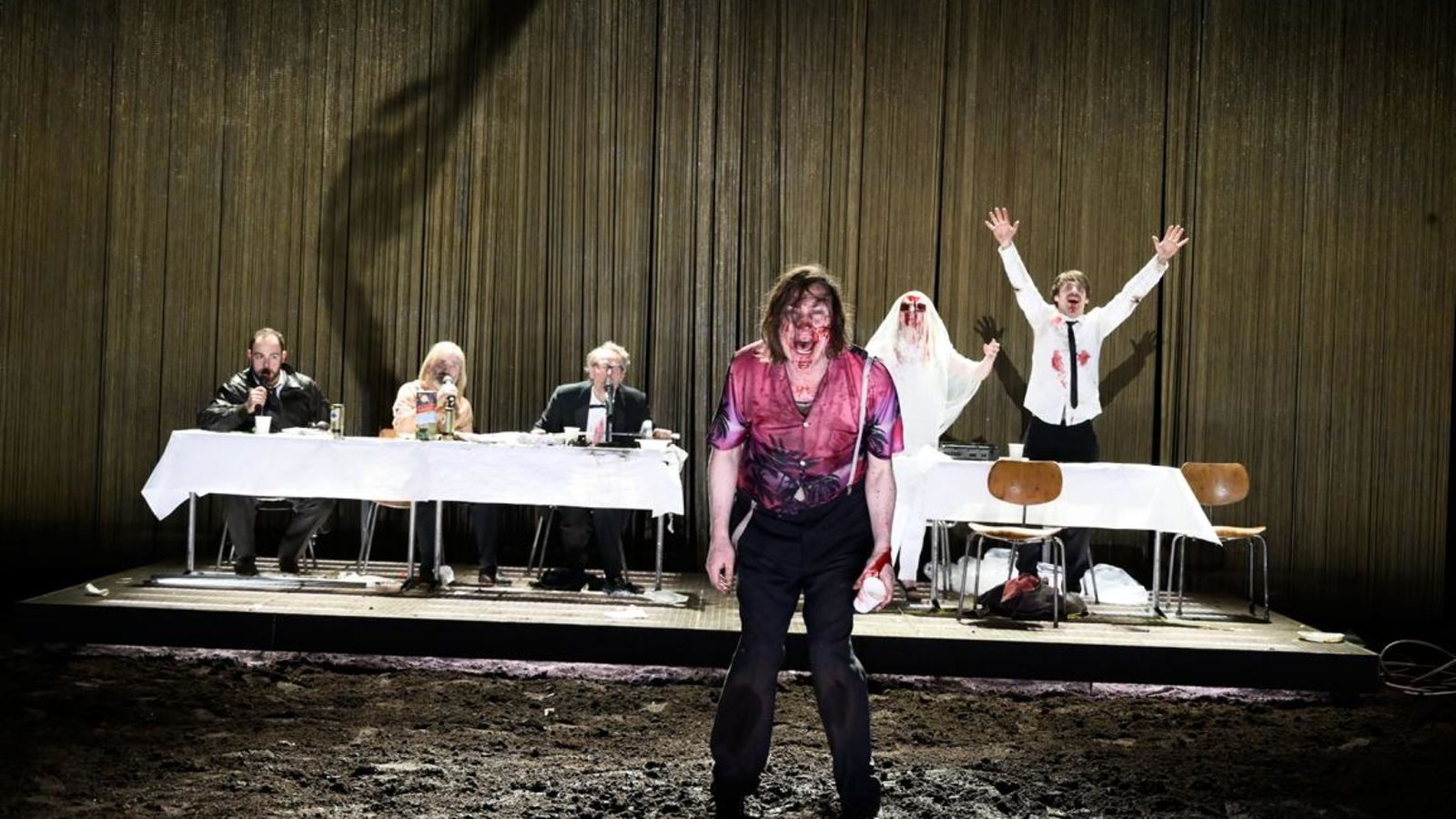
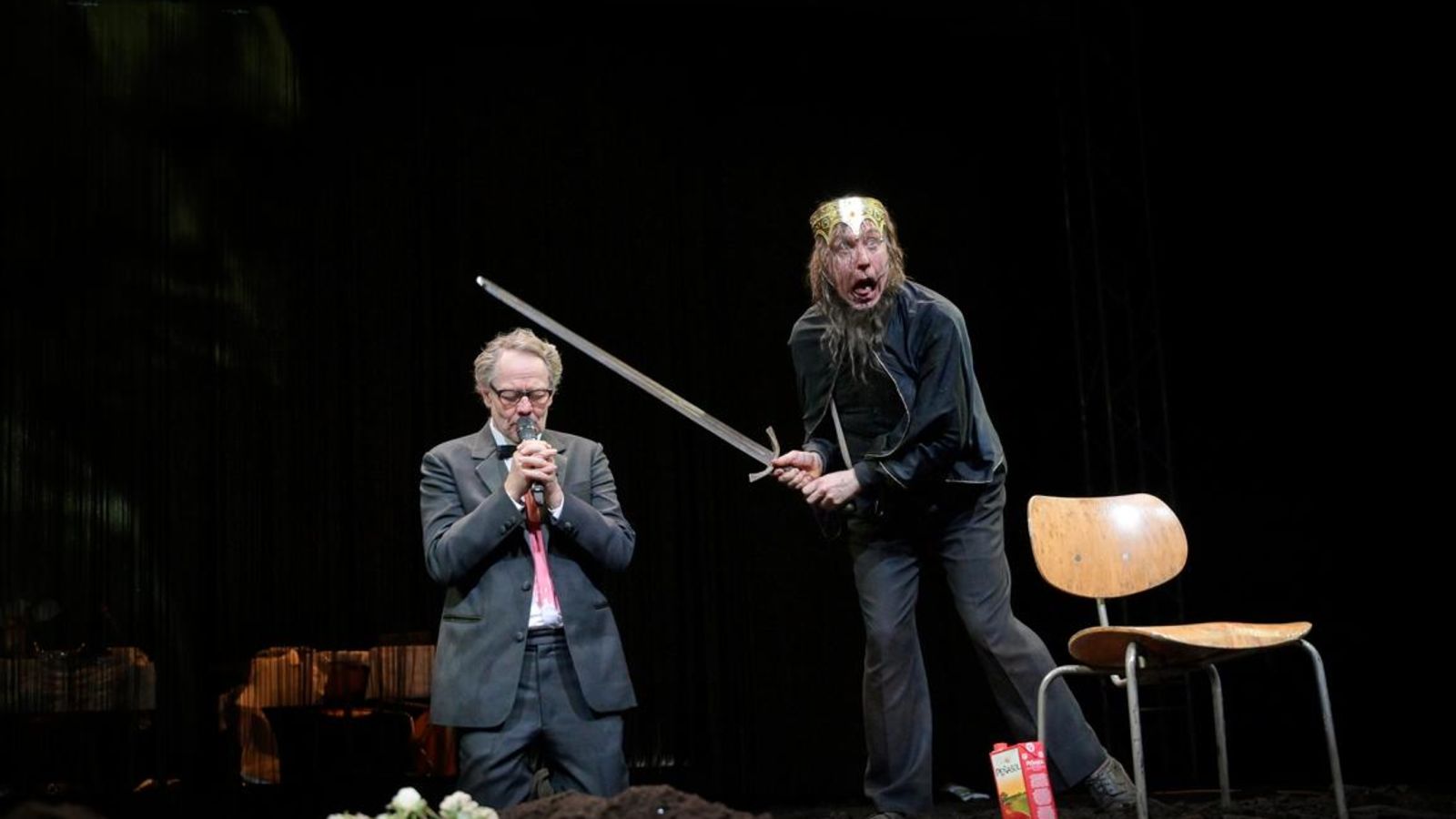
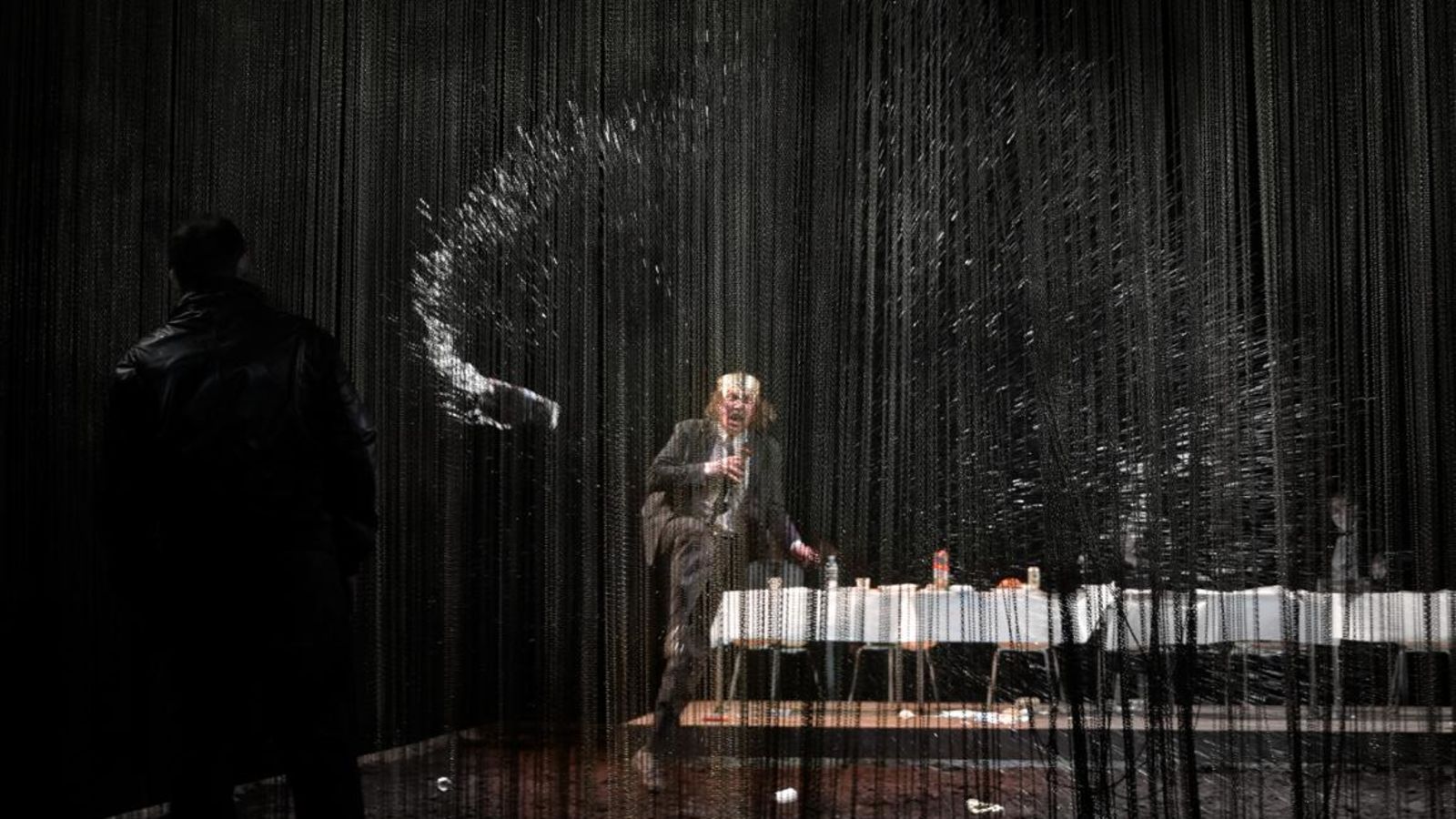
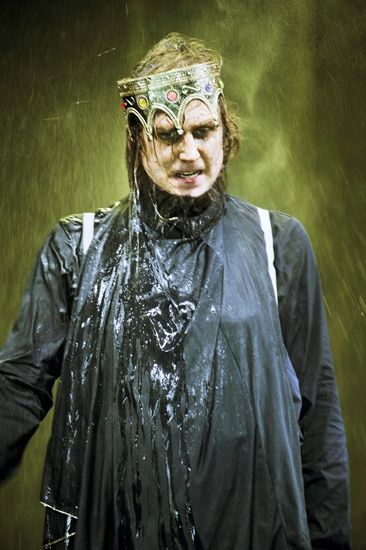
Hamlet
by William Shakespeare
German translation by Marius von Mayenburg
Director: Thomas Ostermeier
Stage A
Hamlet is going crazy. His father has died suddenly of a strange disease, and his mother has married her deceased husband’s brother, of all people, after just one month. Hamlet has nighttime visions of his father, who claims his brother poisoned him, and exhorts Hamlet to take revenge and kill his new stepfather. Hamlet acts the part of the crazy man in order to hide his plans, and loses his grip on reality in the process. The whole world becomes a stagnant swamp to him. Desire and sexuality become a threatening abyss. The friends surrounding him turn out to be spies deployed by his stepfather to keep an eye on him. Even Ophelia, his beloved, is a part of the scheme. The avenger becomes the prey, with an informer listening behind every curtain, as Hamlet’s paranoia proves to be not unfounded. The insane act turns to actual insanity, and Hamlet kills the wrong man: Polonius, Ophelia’s father. His mother and stepfather cover up the murder and keep Hamlet out of the public eye, and Hamlet’s plans for revenge seem to evaporate. He loses control of himself, his goals, and his life. Ophelia falls apart in the face of this and kills herself. When his stepfather decides finally to silence Hamlet, Hamlet seizes the opportunity at hand and with one final rampage forces his world to its knees.
Shakespeare represents the Danish royal court as a corrupt political system which becomes a paranoid maze for Hamlet. Murder, betrayal, manipulation and sexuality are the weapons used in the war to preserve power. Not able to take on and fight the cynical rules of the game at the court, Hamlet stagnates and turns his aggressions against himself. His gift of distinguishing pros and cons becomes an insurmountable hindrance in accomplishing his goals, and as the last person with scruples in a system without any, he is finally doomed. With its central paradox of the incapacitated protagonist, Hamlet remains today a valid analysis of the intellectual dilemma between complex thinking and political action. Shakespeare serves up over twenty characters, allowing a political biosphere to arise out of differing interests and intrigue. In Ostermeier’s production, just six actors will play all these characters, constantly changing roles. Hamlet’s progressive loss of touch with reality, his disorientation, the manipulation of reality and identity are mirrored in the acting style, which takes pretence and disguise as its basic principle.
Director: Thomas Ostermeier
Stage Design: Jan Pappelbaum
Costume Design: Nina Wetzel
Music: Nils Ostendorf
Dramaturgy: Marius von Mayenburg
Video: Sébastien Dupouey
Lighting Design: Erich Schneider
Fight Choreography: René Lay
Hamlet: Lars Eidinger
Gertrud; Ophelia: Jenny König
Polonius; Osrik: Robert Beyer
Horatio; Güldenstern: Damir Avdic
Laertes; Rosenkranz: Konrad Singer
Premiered on 17 September 2008
Tour Dates
Athen (July 2008)
Avignon (July 2008)
Zagreb (September 2008)
Barcelona (December 2008)
Paris (January/February 2009)
Sarajevo (February 2009)
Amsterdam (December 2009)
Sydney (January 2010)
Taipei (March 2010)
Bukarest (April 2010)
Moskau (September 2010)
Seoul (October 2010)
Reims (December 2010)
Rennes (April 2011)
Jerusalem (June 2011)
Buenos Aires (September 2011)
Santiago de Chile (October 2011)
Venedig (October 2011)
London (December 2011)
Clermont-Ferrand (February 2012)
Craiova (May 2012)
Istanbul (May 2012)
Helsingör (August 2012)
Ramallah (September 2012)
Lausanne (October 2013)
Dublin (September 2014)
Tianjin (June 2015)
Tehran (January 2016)
Guanajuato/Mexico (October 2019)
New York (Oktober/November 2022)
A co-production with the Festival Athens and the Festival d'Avignon
Strobe lights will be used during this performance.
Trailer
Mit dem Aufruf des Videos erklären Sie sich einverstanden, dass Ihre Daten an YouTube übermittelt werden. Mehr dazu finden Sie in unserer Datenschutzerklärung.
Bei Klick auf die Schaltfläche "Akzeptieren" wird ein Cookie auf Ihrem Computer abgelegt, so dass Sie für die Dauer einer Stunde, diese Meldung nicht mehr angezeigt bekommen.
